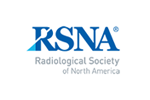CT Safety During Pregnancy
Illness during pregnancy
If you become ill during pregnancy, both you and your unborn child become patients. Before treatment, your doctor must determine your medical needs and health conditions that could be affecting you and your baby.
Why do you need a CT exam?
Your doctor may order a computed tomography (CT) exam if you have symptoms that require treatment or exam results that need clarification but cannot wait until after the delivery of your baby.
There are many reasons why you may need a CT exam, but your doctor can explain the type of information he/she is seeking from the exam. You should ask about your doctor's concerns and the need for this medical imaging exam.
Imaging exams are used to see inside the body and help determine if there is a medical problem. CT is a widely used imaging exam. CT uses x‑ray radiation; therefore, it is used only when necessary.
Alternatives to CT
In a pregnant patient, where both the baby and mother are being imaged, other imaging exams, such as ultrasound or magnetic resonance imaging (MRI), that do not involve x-rays, may be used if they provide the information your doctor needs.
When ultrasound or MRI does not provide the answers needed, or the information is needed quickly, CT may be the best imaging option. This is a decision for you and your doctor to make together.
CT risks during pregnancy
If the abdomen or pelvis is not being imaged, such as in chest or head CT, there is no risk to the baby from radiation.
The amount of radiation used in normal CT imaging has never been shown to cause harm to an unborn child. However, if the CT scan examines the abdomen or pelvis area, then there may be a very slight risk to the baby. An unborn baby exposed to CT during pregnancy may have about a one in 1,000 greater chance of developing a cancer as a child. The level of risk is not proven though, and may be nonexistent. The radiologist (a doctor with expertise in medical imaging) and the CT technologist will adjust the CT exam techniques to lower the radiation dose to your baby if they know you are pregnant.
You should not refuse a CT exam necessary for diagnosing your potentially serious or urgent illness because of fear of radiation. The most important factor in having a healthy baby is ensuring a healthy mother, because the baby depends on the mother to stay well and carry her pregnancy to term.
The goal is to take care of the mother, who has a much greater chance of developing a serious illness, such as appendicitis.
Contrast material
For some CT exams, contrast material may need to be injected intravenously into an arm vein.
Contrast material does cross the placenta to your baby. It has been used in pregnancy for decades without harm. Use of contrast material has not been shown to harm.
CT during pregnancy
An illness is not pleasant, and a significant illness during pregnancy can be especially serious. However, the baby depends on the mother to stay healthy and to carry her pregnancy to term. If helping the mother become better means performing a CT exam, then it will benefit the baby's health as well.
This page was reviewed on March 24, 2025




